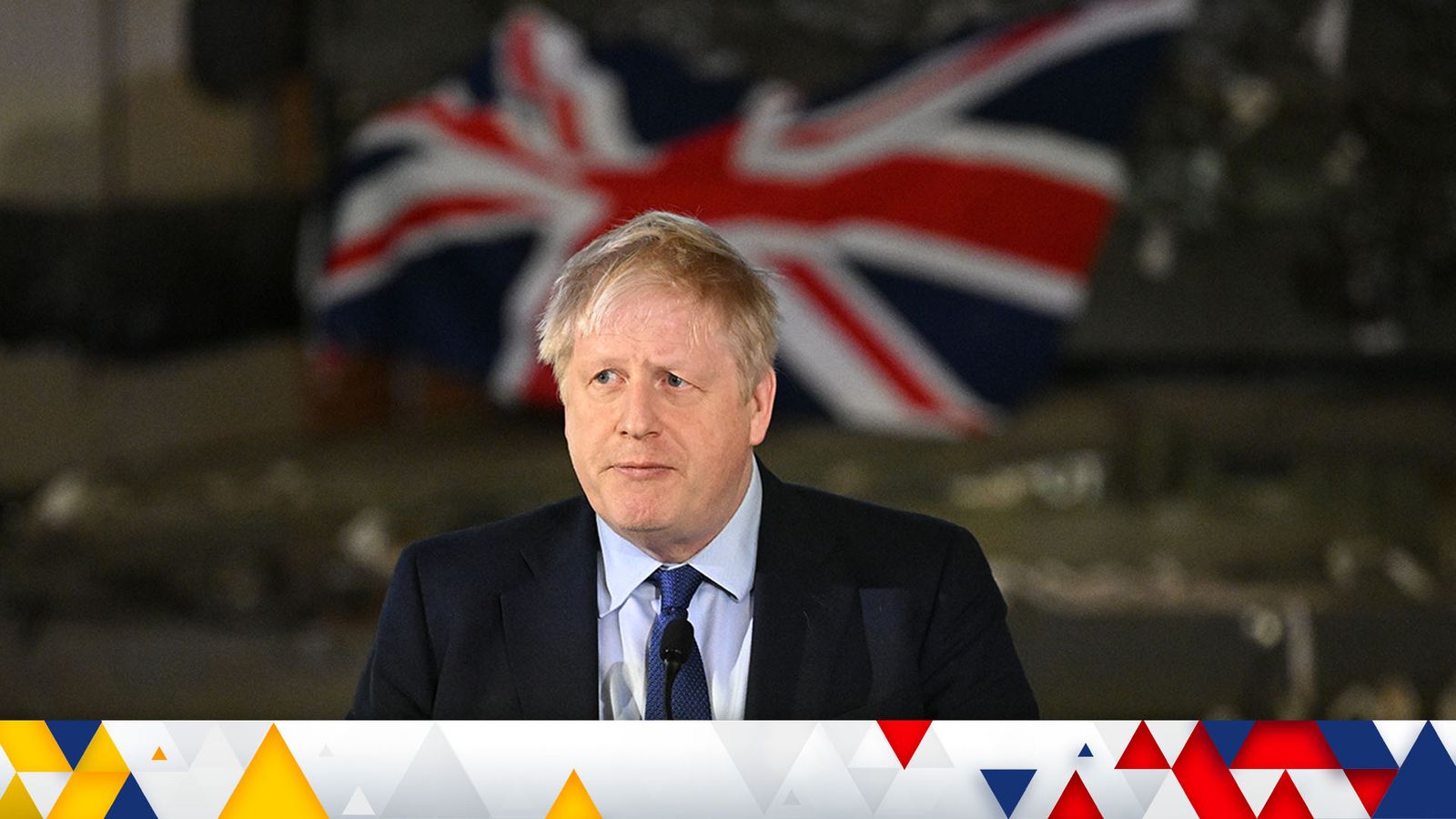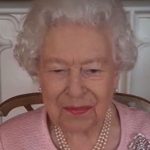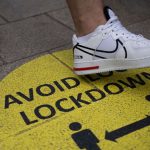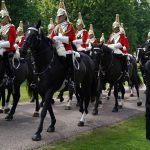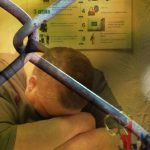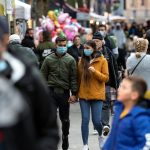Boris Johnson has claimed Vladimir Putin is trying to “rewrite the rules” of international order “by military force” – as he prepares to host world leaders for talks at Downing Street.
Canadian Prime Minister Justin Trudeau and Mark Rutte of the Netherlands will visit Number 10 on Monday.
On Tuesday, Mr Johnson will host leaders of the V4 group of central European nations – the Czech Republic, Hungary, Poland and Slovakia – which are already experiencing the impact of Ukraine’s humanitarian crisis.
Ukraine invasion: Live updates
Please use Chrome browser for a more accessible video player
In an essay in The New York Times, Mr Johnson wrote: “Putin must fail and must be seen to fail in this act of aggression. It is not enough to express our support for the rules-based international order – we must defend it against a sustained attempt to rewrite the rules by military force.
“The world is watching. It is not future historians but the people of Ukraine who will be our judge.”
In the same article, Boris Johnson has also launched a six-point plan of how the international community should resolve the crisis – including humanitarian and military support, economic sanctions, an attempt to find a diplomatic solution, and a renewed effort to strengthen security across Europe.
Ukraine-Russia latest news: Evacuation halted after ‘continued shelling’; MoD says Russia seeks to shift blame for civilian casualties
Ukraine invasion: Western sanctions ‘equivalent to declaring war’ Putin claims as he defends military action
Ukraine invasion: Russian ‘ceasefire’ was probably cover for Moscow resetting its forces for renewed offensive, UK says
Foreign Secretary Liz Truss has conceded Western countries were too slow to change their approach to Russia, especially after the annexation of Crimea in 2014 and the Salisbury Novichok poisoning in 2018.
“I believe that the whole West should have done more earlier,” she told the Sunday Express.
Please use Chrome browser for a more accessible video player
“We didn’t do enough as Putin staged invasions into neighbouring countries. There is a great sense of resolve now to take a completely different approach.”
She also said petrol and household energy bills may rise but it is incomparable to the price of not holding Putin to account: “The cost of not stopping him now would be disastrous.”
Labour is urging the prime minister to bring forward new legislation to block Russian oligarchs from pursuing vexatious high-cost legal claims through British courts to avoid sanctions.
Please use Chrome browser for a more accessible video player
The so-called Strategic Lawsuits Against Public Participation have previously been used to censor and threaten journalists and activists.
Read more:
Sky News team’s harrowing account of their violent ambush in Ukraine this week
‘Welcome to Hell’ – the message facing Russian invaders as Kyiv prepares for the fight of its life
Exhausted women and children shelter in tents after fleeing Putin’s war
Sir Keir Starmer said: “We are already behind the rest of the world in enforcing sanctions against oligarchs funding Putin’s murderous invasion of Ukraine.
“We can’t then also give room for them to sue their way out of sanctions, while gagging the UK’s media. Lawfare is not the way we do things in this country. The freedom of the British press is to be cherished, respected, and protected.”
Political correspondent
None of Boris Johnson’s six-point plan is new, but government sources argue it is intended to set out the breadth of the UK’s response and ensure key commitments are acted upon.
Mr Johnson has certainly been vocal in pushing for harsher sanctions, but Labour has criticised the speed of UK measures and suggested some oligarchs will be able to move assets before their finances are restricted.
The prime minister is no doubt passionate about the central role the UK can play in this crisis, but after months of instability in No 10, it is also an opportunity to improve his battered domestic reputation and present himself as a statesman on the world stage.
His advisers will be hoping next week’s photocalls and news conferences alongside Western leaders will help bolster that image.
